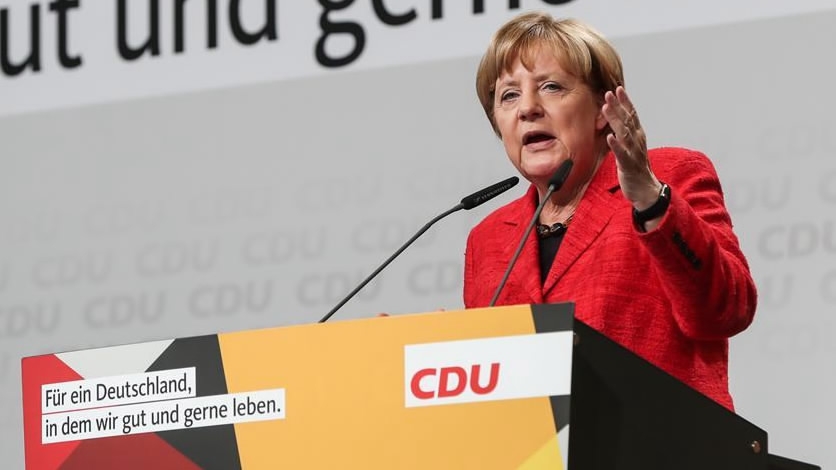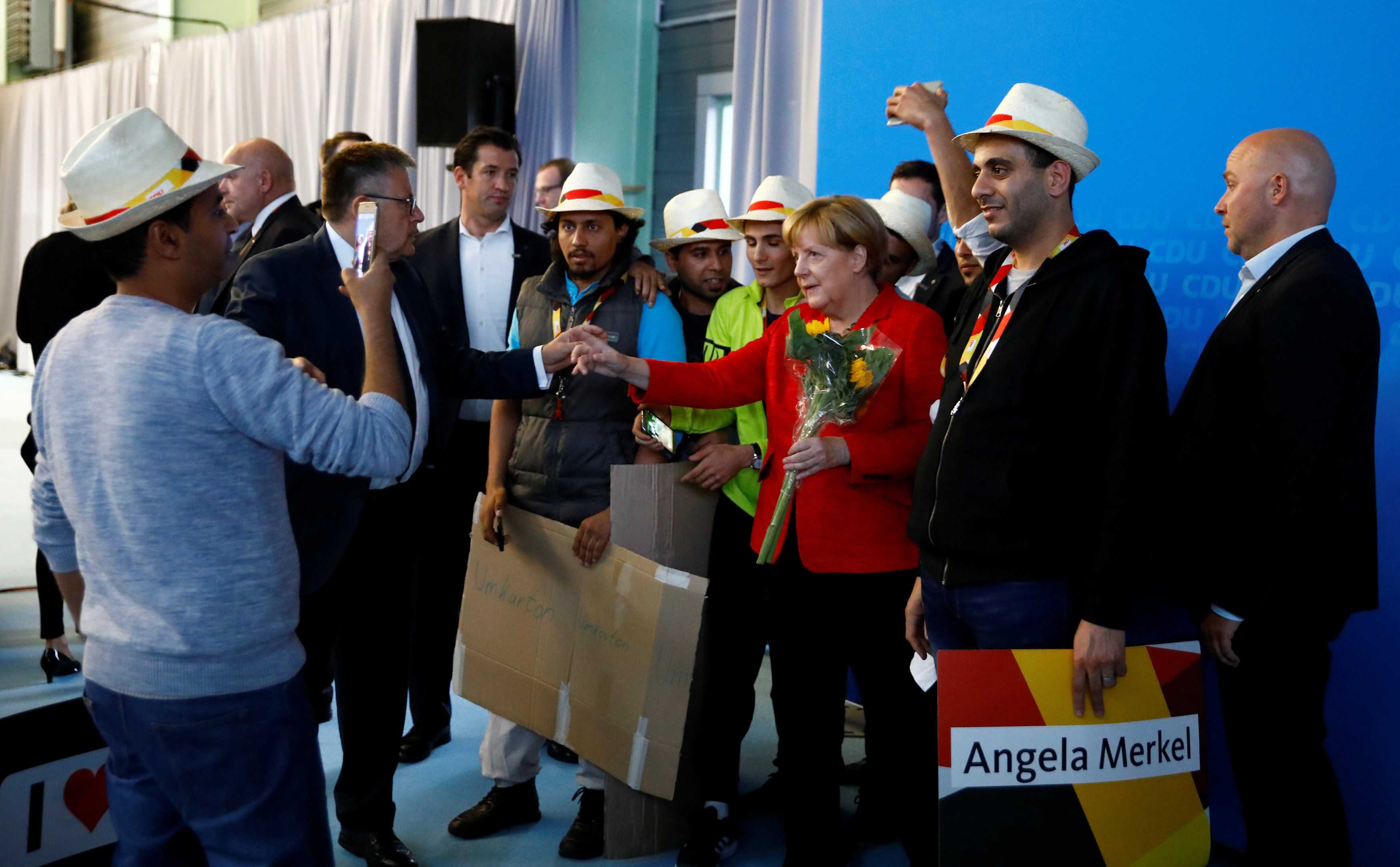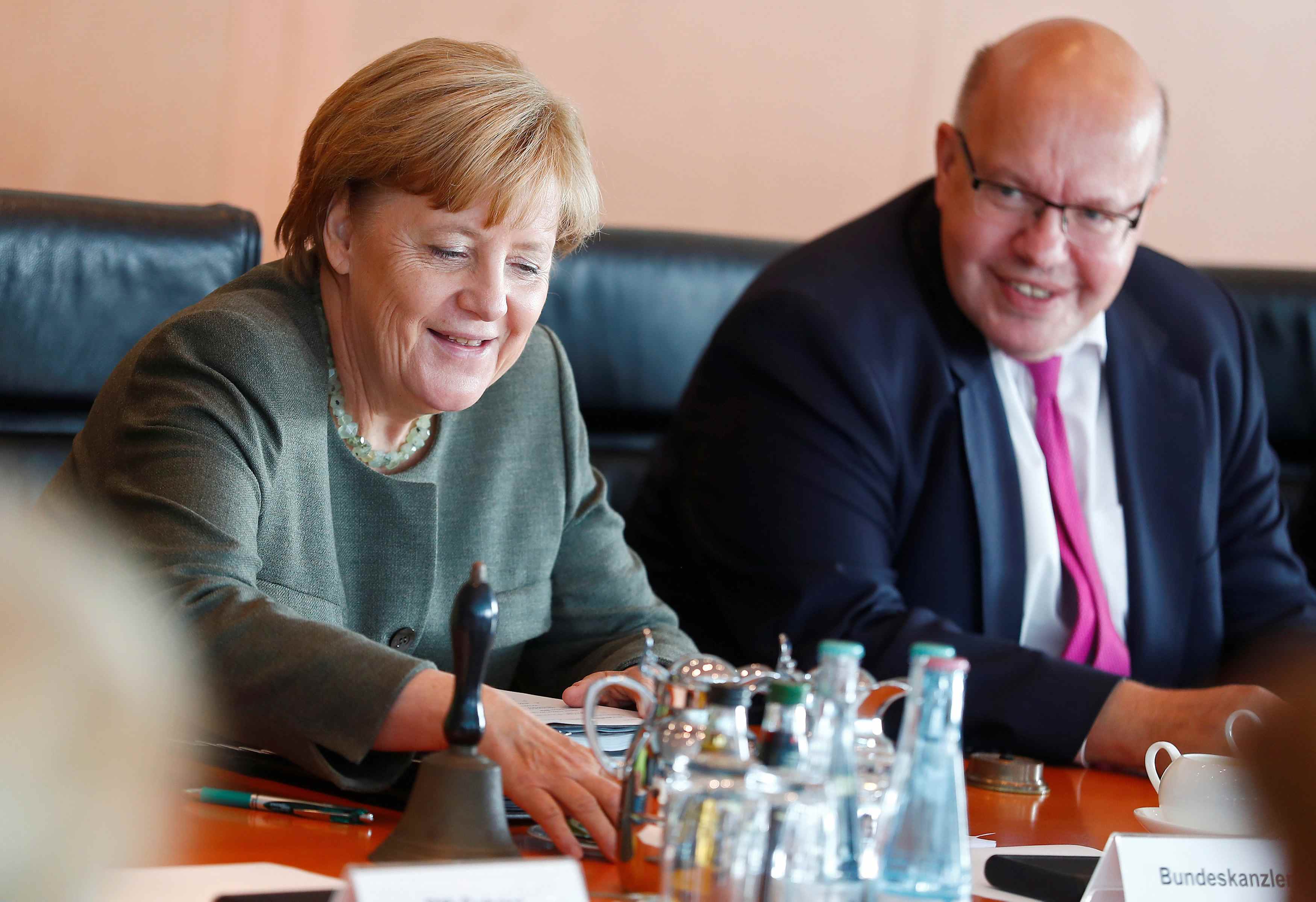
Politics
22:54, 20-Sep-2017
Europe’s electoral finale: Why the German vote matters
By Guy Henderson

Did anyone predict this even 6 months ago? The German Chancellor didn’t – Angela Merkel had said publicly that this would be her toughest election campaign to date.
She was wrong.
Her Christian Democrats are so far ahead of their nearest rivals as this election approaches that even another slip-up in the polls would be unlikely to close the gap enough for a major upset.
The last few years have been a remarkable roller-coaster for her: From that decision in the autumn of 2015, to open Germany’s doors to Syrian refugees, that will surely come to define the Merkel era when the history books are written.

German Chancellor Angela Merkel, a top candidate of the Christian Democratic Union Party (CDU) for the upcoming general elections, takes pictures with supporters at an election rally in Schwerin, Germany, September 19, 2017. /Reuters Photo
German Chancellor Angela Merkel, a top candidate of the Christian Democratic Union Party (CDU) for the upcoming general elections, takes pictures with supporters at an election rally in Schwerin, Germany, September 19, 2017. /Reuters Photo
To the lows, less than a year later, when some in her own CDU party asked whether the government had lost control, and whether the chancellor’s days in power might be numbered.
Today, most Germans believe Merkel made the right choice as she marches towards a fourth term.
Not enough of them to entirely stave off the right-wing Alternative for Germany – a party that may enter parliament for the first time after voting day. Their central message continues to hone in on popular discontent over the influx of foreigners.
But it’s not their only message.
Guido Reill, a center-left Social Democrat-turned AfD candidate whose campaign bus features an image of a miner, riles against refugees, but underlying that is another theme: the worker, left behind by globalization.
From the United States, to France and now Germany – right wing nationalists have used similar tactics to push their way into the political mainstream.

German Chancellor Angela Merkel and the head of the chancellery Peter Altmeier arrive for the weekly cabinet meeting at the Chancellery in Berlin, Germany, September 20, 2017. /Reuters Photo
German Chancellor Angela Merkel and the head of the chancellery Peter Altmeier arrive for the weekly cabinet meeting at the Chancellery in Berlin, Germany, September 20, 2017. /Reuters Photo
On the whole, through this year of electoral tests for Europe, voters have, unlike in the US, just about bought the promises of their more centrist leaders during this period of crisis: to reform, renew and re-connect with their constituents.
That paves the way for a decisive period of re-shaping this continent over the next few years. Can those leaders deliver? If they don’t, could that anger boil over and usher in more radical changes?
In all likelihood Merkel's CDU will have to build a coalition to govern, meaning smaller parties will have their say in molding that new vision for Europe.
So will it be the center-left Social Democrats again, which, like Merkel herself, largely backs French president Emmanuel Macron’s calls for deeper integration and helping Europe’s weaker southern economies?
Could it be the Green Party, also in favor of more continental burden-sharing, and a voice to counter Germany’s powerful automobile manufacturing lobby.
Or perhaps a revitalized Free Democratic Party, who’s star-performer Christian Lindner is no fan of “Macronomics," and promises tax cuts and less red tape.
The winner on Sunday seems all but certain, but the runner-up may bear an influence on where Europe goes from here.

SITEMAP
Copyright © 2018 CGTN. Beijing ICP prepared NO.16065310-3
Copyright © 2018 CGTN. Beijing ICP prepared NO.16065310-3